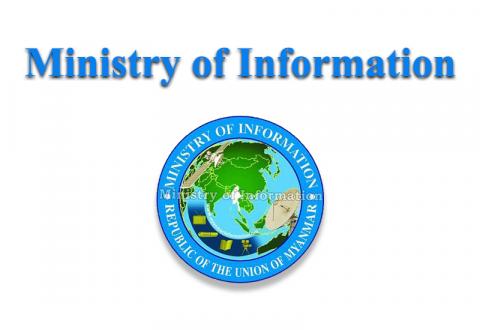Strive for peace and development through unity
MYANMAR has been facing over 70 years of instable situations, beginning with armed conflicts that emerged alongside its independence. Successive governments have attempted to achieve domestic peace through various means. However, due to ethnic, ideological, pride-driven, and ego-centred divisions, peace has remained elusive, appearing fleetingly like a glimmer of hope before disappearing again — an ongoing loss for the nation.
Peace is a fundamental cornerstone for the economic development of the nation, the improvement of the social well-being of its people, the harmony and prosperity of the Union, and the rule of law. Mutual respect and understanding among ethnic groups foster collaboration and cooperation, reducing misunderstandings and conflicts, which can be resolved through negotiation. A relationship based on trust enables the resolution of numerous challenges together, ultimately fostering a more harmonious coexistence and paving the way for durable peace and stability.
Due to the lack of peace, it is well-known that people are living in a state of great worry and concern. The consequences of these conflicts have severely impacted the socio-economic lives of local ethnic communities. Therefore, solutions must be sought through peaceful means to promote the well-being of one’s region and people.
If political issues are not resolved through political means but rather through armed conflict, even in an independent nation, the people would find themselves living in poverty-stricken, turbulent lives. Although the nation may be independent, it is everyone’s responsibility to prevent a situation where its citizens are forced to live uncertain and unstable lives. Everybody must ensure that future generations can live peacefully, happily, and securely by making their lives a lasting part of history.
The Nationwide Ceasefire Agreement (NCA) is a historic pact for peace, and it is essential for all ethnic armed organizations to respect and adhere to it. The State Administration Council has been engaging in dialogue with political parties and ethnic armed organizations to achieve lasting peace. The outcomes and agreements reached during these bilateral discussions have been documented to ensure they can be deliberated and ratified in future parliamentary sessions.
This is the time for all national brethren to foster mutual trust, free from suspicion and misunderstandings, and to set aside unnecessary ideologies. They must collaborate with mutual respect, trust, and affection to forge durable peace. If so, the Union will remain peaceful and respective regions flourish in harmony. By exercising the rights granted under the Constitution, everybody must work together in unity to achieve national stability, peace, and sustainable development.
#TheGlobalNewLightOfMyanmar

